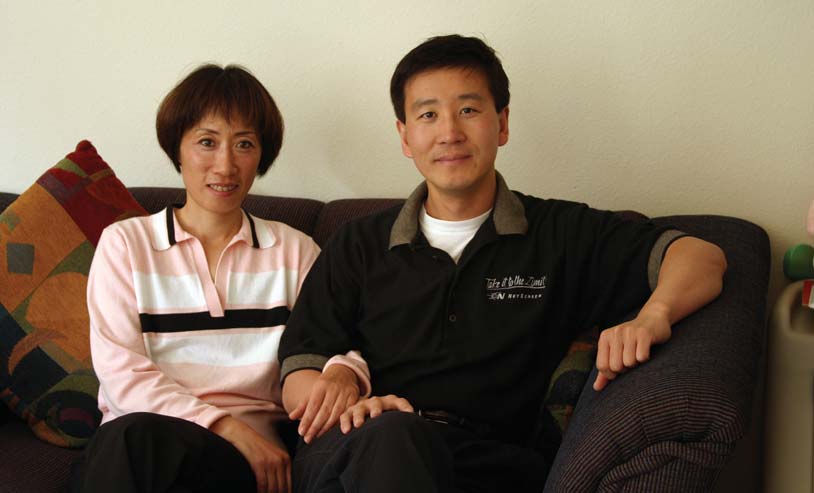
Ask Yan Ke ’89 PhD, co-founder, vice president, and chief architect of NetScreen Technologies, Inc. what the most important lesson was that he learned while at the Whiting School of Engineering, and the computer scientist replies, “discipline.”
Indeed, Ke learned this lesson well. He came to Baltimore after receiving his bachelor’s degree from Tsinghua University in his native Beijing, China. Four years later, he had earned a PhD in Computer Science and was one step closer to realizing his entrepreneurial dream of starting and building a company.
Ke “clearly wanted to do well,” recalls Professor Gerald Masson. Masson served as founding chair of the Whiting School’s Computer Science Department from 1986- 2001 and is now director of the Johns Hopkins University Information Security Institute (ISI). Ke’s parents, who are electrical engineering professors in China, had contacted Masson about the possibility of their son becoming a graduate student in this new department. Now, when Masson meets Ke, he can still see Ke’s “attention to detail, the way that he can assimilate information and put it into context.”
While at Hopkins, Ke met his future wife, June Li, who was working on a PhD in Biomedical Engineering, which she completed in 1991. Li moved to California to work in research at UCLA. After a brief time as an assistant professor at the University of Saskatchewan, Ke took a position in software engineering at Hughes LAN in Silicon Valley so he and Li could be together. They were soon married.
Arriving in Silicon Valley in the early 1990s, Ke found himself at the center of a world of hi-tech opportunity. “I worked at Hughes for three years,” he explains. Then he joined Cisco Systems as a senior software engineer. “I went there to see how they made themselves successful…so I could do the same thing,” he notes.
“In early 1997, two friends and I started brainstorming,” Ke continues. They were seeking ways to leverage their combined skills in engineering development, software design, and network integration. “Our idea was to embed dedicated software on a microchip,” Ke says. At the time, software was delivered primarily on disk or CD-ROM. Software instructions embedded on microchips meant “no moving parts, lower cost, ease of installation, improved performance,” he explains.
Network security was in its infancy. “We could see that secure Ethernet switching systems based on silicon technology would be a good thing,” Ke recalls.
Before seeking venture capital, the three friends pooled their own money to build a prototype. They worked on weekends while holding day jobs. Then, when it was ready, “we all quit,” Ke says. “Getting funding is a full-time job.”
In late 1997, an angel investor primed the pump with $1 million. Three months later, Sequoia Capital pumped in $3.5 million. “That pretty much kicked off the company,” says Ke. Within a year, NetScreen Technologies, Inc. employed 30 people.
Today, NetScreen is publicly traded, employs more than 800, and has offices in Sunnyvale, California; Hong Kong; and Fleet, England. In a world of heightened interest in information security, the company is well-positioned for success. Along with lucrative contracts have come recognition for Ke and co-founder Feng Deng. In 2002, they were awarded the prestigious Ernst & Young Northern California “Entrepreneur of the Year” award for technology.
Still, Ke admits, “running a company is never smooth sailing. You have to keep focused, always aiming toward your goal.” And this discipline, he says, he learned at Hopkins. “When I was doing my PhD, there were many occasions when I would spend weeks working a problem, feeling there was no solution. But eventually, I’d get it.” Now, as Ke seeks ways to give back to Hopkins, it is hard to find the time. But even with his tight schedule and family responsibilities, Ke accepted an invitation from the ISI in October 2003 to conduct a seminar for students and faculty on network security, market technology, and trends.
The two alumni give back in other ways. Through the President’s Club and the Whiting School Legacy Circle, the couple helps to ensure that the opportunities afforded to them by Hopkins are available for rising generations of entrepreneurs. “I have always been grateful to Hopkins for admitting me as a foreign student,” he says. “Without that help, I never would have been able to achieve what I have today.”




